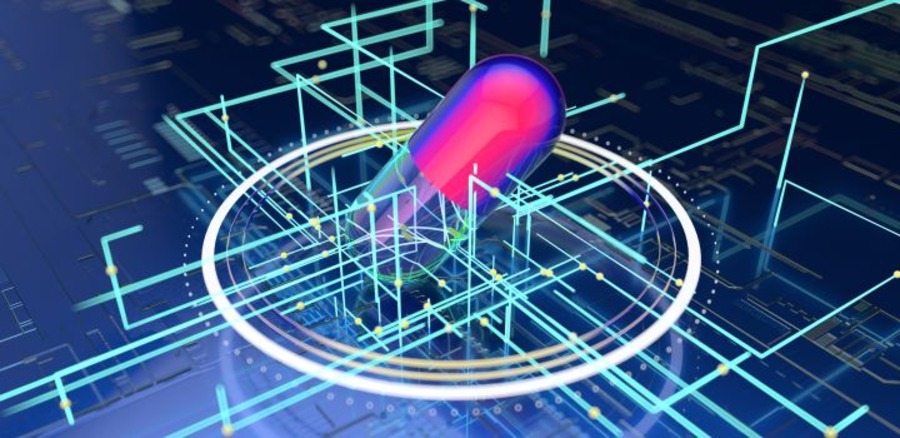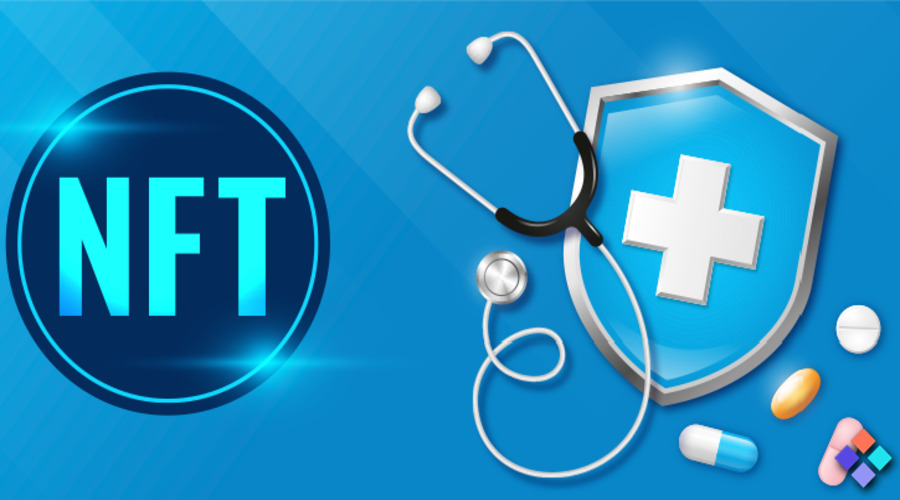Non-fungible tokens (NFTs) are a buzzword in the world of art and collectibles, but their potential is not limited to these industries alone. In recent years, the healthcare sector has started exploring the use of NFTs to support medical research and innovation. In this article, we will explore the concept of NFTs and how they can revolutionize the medical industry. We will also examine the potential benefits and challenges of using NFTs in medicine.
Introduction to NFTs
NFTs are digital assets that are unique and cannot be replicated or replaced. They are created using blockchain technology, which ensures that they cannot be altered or duplicated. NFTs are used to represent anything that has value, including art, music, and videos. They are also used in gaming and social media platforms.
How NFTs Can Support Medical Research
Medical research requires significant funding to conduct studies, purchase equipment, and pay staff. However, obtaining funding for medical research is becoming increasingly difficult due to the high costs involved. NFTs provide a new way of financing medical research by allowing individuals to purchase unique digital assets that are linked to the research.
NFTs can be used to represent various aspects of medical research, including research data, patient data, and medical equipment. By creating NFTs for these assets, medical researchers can offer them for sale to interested parties. The revenue generated from the sale of NFTs can be used to fund medical research, making it easier for researchers to obtain the necessary funding.
The Potential Benefits of Using NFTs in Medicine
There are several potential benefits of using NFTs in healthcare, including:
Increased Funding for Medical Research
As mentioned earlier, NFTs provide a new way of financing medical research, which can help increase the funding available for medical research.
Improved Data Security
Blockchain technology, which is used to create NFTs, provides a high level of security. This means that medical data stored on the blockchain can be kept secure and private, reducing the risk of data breaches.
Improved Patient Engagement
NFTs can be used to reward patients for participating in medical research studies. Patients can be given NFTs that represent their participation in the study, which they can keep as a digital souvenir.
Improved Transparency
Blockchain technology provides a high level of transparency, making it easier to track the flow of funds in medical research. This can help increase accountability and reduce the risk of fraud.
Challenges of Using NFTs in Medicine

While there are many potential benefits of using NFTs in healthcare, there are also several challenges that need to be addressed. These include:
- Regulatory Challenges: The regulatory landscape for NFTs in healthcare is not well-defined, which can create uncertainty for medical researchers and investors.
- Lack of Standardization: Currently, there is no standardization for NFTs in healthcare. This can create confusion and make it difficult to exchange NFTs between different platforms.
- Technical Complexity: NFTs are created using blockchain technology, which can be complex and difficult to understand. This can make it difficult for medical researchers to create and manage NFTs.
Case Studies and Examples of NFTs in Medicine
Including case studies and examples of how NFTs have been used in healthcare can help illustrate their potential benefits and challenges. For example, a medical research project might use NFTs to represent research data or to reward patients for their participation in the study. These case studies and examples can provide concrete examples of how NFTs are being used in the healthcare industry and can help readers understand their potential applications.
Ethical Considerations of NFTs in Medicine
As with any new technology, there are ethical considerations that need to be taken into account when using NFTs in healthcare. For example, there may be concerns around the use of patient data and the privacy implications of using blockchain technology to store this data. Exploring these ethical considerations can help readers understand the potential risks and benefits of using NFTs in healthcare.
The Role of Partnerships in Supporting NFTs in Medicine
The healthcare industry is complex, and implementing new technologies like NFTs requires collaboration between different stakeholders, including medical researchers, investors, regulators, and patients. Exploring the role of partnerships in supporting the use of NFTs in healthcare can help readers understand how different stakeholders can work together to overcome the challenges associated with implementing new technologies in the healthcare industry.
Potential Future Applications of NFTs in Medicine
NFTs are a relatively new technology, and their potential applications in healthcare are still being explored. Including a section on potential future applications of NFTs in healthcare can help readers understand the long-term potential of this technology. For example, NFTs might be used to represent medical equipment or to fund new drug development.
The Role of NFTs in Clinical Trials
Clinical trials are an essential part of medical research, but they are also expensive and time-consuming. NFTs can be used to support clinical trials by allowing researchers to sell tokens that represent different aspects of the trial, such as patient data or research equipment. This can help fund the trial and make it easier for patients to participate.
Using NFTs to Address Health Inequalities
Health inequalities are a major issue in many countries, with some populations experiencing poorer health outcomes than others. NFTs can be used to address health inequalities by funding research into diseases that disproportionately affect certain communities. For example, researchers could create NFTs that represent research into diseases that predominantly affect women or people of a certain ethnicity.
Supporting Open Science with NFTs
Open science is a movement that aims to make scientific research more accessible and transparent. NFTs can be used to support open science by creating a transparent and decentralized system for funding and conducting research. This can help ensure that scientific research is conducted in the public interest and is accessible to everyone.
Potential Risks of Using NFTs in Medicine
While there are many potential benefits of using NFTs in healthcare, there are also potential risks that need to be considered. For example, the use of blockchain technology to store patient data may raise concerns around privacy and data security. There may also be concerns around the potential for fraud or exploitation in the sale of NFTs. Exploring these potential risks can help readers understand the potential downsides of using NFTs in healthcare.
NFTs and Drug Development
NFTs can be used to support drug development by allowing researchers to sell tokens that represent different stages of the drug development process. This can help fund the development of new drugs and make it easier for investors to get involved in the process.
NFTs and Medical Equipment
Medical equipment is an essential part of the healthcare industry but can also be expensive to purchase and maintain. NFTs can be used to fund the purchase and maintenance of medical equipment by allowing healthcare providers to sell tokens that represent different pieces of equipment. This can help make healthcare more accessible and affordable for patients.
NFTs and Medical Education
Medical education is a crucial part of the healthcare industry but can also be expensive and time-consuming. NFTs can be used to support medical education by allowing educators to sell tokens that represent different courses or training programs. This can help make medical education more accessible and affordable for students.
NFTs and Rare Diseases
The medical industry often overlooks rare diseases due to their low prevalence and the high cost of research. NFTs can be used to support research into rare diseases by allowing researchers to sell tokens that represent different aspects of the research process. This can help fund research into rare diseases and improve the lives of patients affected by these conditions.
Conclusion
In conclusion, NFTs have the potential to transform the healthcare industry by providing a new way of financing medical research, improving data security, and increasing patient engagement and transparency. While there are challenges that need to be addressed, such as regulatory issues and technical complexity, the potential benefits of using NFTs in healthcare are significant. By exploring the different ways that NFTs can be used in the healthcare industry, from drug development to waste management and supply chain management, it is clear that this technology has the potential to improve patient outcomes and make healthcare more accessible and affordable for patients around the world.
FAQs
- What is an NFT?
An NFT, or non-fungible token, is a digital asset representing ownership of a unique item or data. - How are NFTs created?
NFTs are created using blockchain technology, which ensures that they cannot be replicated or altered. - What are the potential benefits of using NFTs in healthcare?
The potential benefits of using NFTs in healthcare include increased funding for medical research, improved data security, improved patient engagement, and improved transparency. - What are the challenges of using NFTs in healthcare?
Using NFTs in healthcare includes regulatory challenges, lack of standardization, and technical complexity. - How can the challenges of using NFTs in healthcare be addressed?
The challenges of using NFTs in healthcare can be addressed by creating clear regulations, establishing standards, and providing technical support for medical researchers.
I’m a highly experienced and well-respected author in the field of cryptocurrency. I have been involved in the industry for over 5 years and have written extensively on the topic, both for academic and general audiences. I’m highly sought-after as a speaker and consultant on cryptocurrency, due to my in-depth knowledge and understanding of the industry. I’m also a regular contributor to leading industry publications.

